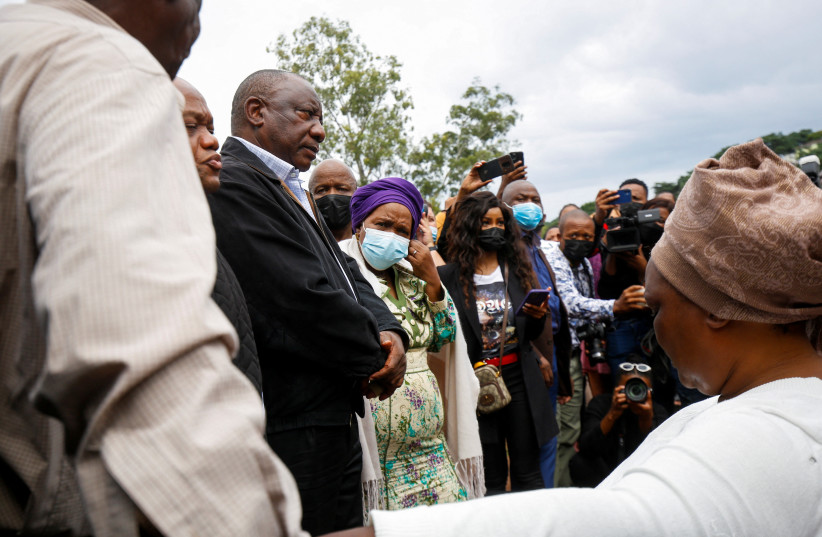The death toll from devasting floods on South Africa's east coast increased to 259, a provincial official said on Wednesday, from an earlier estimate of just over 50.
The heavy rains on Tuesday also displaced dozens, swept away roads and disrupted shipping in one of Africa's busiest ports.
South African President Cyril Ramaphosa pledged to help the victims of devastating east coast floods on Wednesday, as the death toll rose to 259 from heavy rains that washed out roads and disrupted shipping in one of Africa's busiest ports.
Ramaphosa visited families who had lost loved ones in KwaZulu-Natal province, including a family with four children, after floods and mudslides ravaged their homes on Tuesday.
Africa's southeastern coast is on the front line of seaborne weather systems that scientists believe global warming is making nastier - and predict will get far worse in decades to come.

"You're not alone ... We'll do everything in our power to see how we can help," Ramaphosa said. "Even though your hearts are in pain, we're here for you."
Nonala Ndlovu, chief director of the Department of Cooperative Governance for KwaZulu-Natal, told Reuters the police estimate of the death toll was 259.
South Africa's northern neighbor Mozambique has suffered a series of devastating floods over the past decade, including one last month that killed more than 50 people.
"You're battling one of the biggest incidents we've seen and we thought this only happens in other countries like Mozambique or Zimbabwe," Ramaphosa told the victims.
A report by the Intergovernmental Panel on Climate Change (IPCC) in February warned that humanity was far from ready even for the climate change that is already baked into the system by decades of fossil fuel-burning and deforestation. It urged the world to ramp up investments in adaptation.
"None of this is surprising but it's absolutely devastating. Can you imagine the cost to people's lives? The roads, the ports ... It's massive," Melissa Melissa Fourie, a commissioner on Ramaphosa's Presidential Climate Commission and head of the Centre for Environmental Rights, told Reuters.
"In South Africa, we're still talking about the transition from fossil fuels as if it was optional," she added. "We have to stop (burning them). And have to start preparing for the climate change that we already have."
South African pulp and paper maker Sappi SAPJ.J said on Wednesday the flooding had prevented staff from traveling to work, and the transport of goods had been disrupted, impacting three mills. South Africa's biggest logistics and freight operator Transnet, which runs the port of Durban, gradually resumed operations there on Wednesday after suspending them on Tuesday, the public enterprise ministry said.
